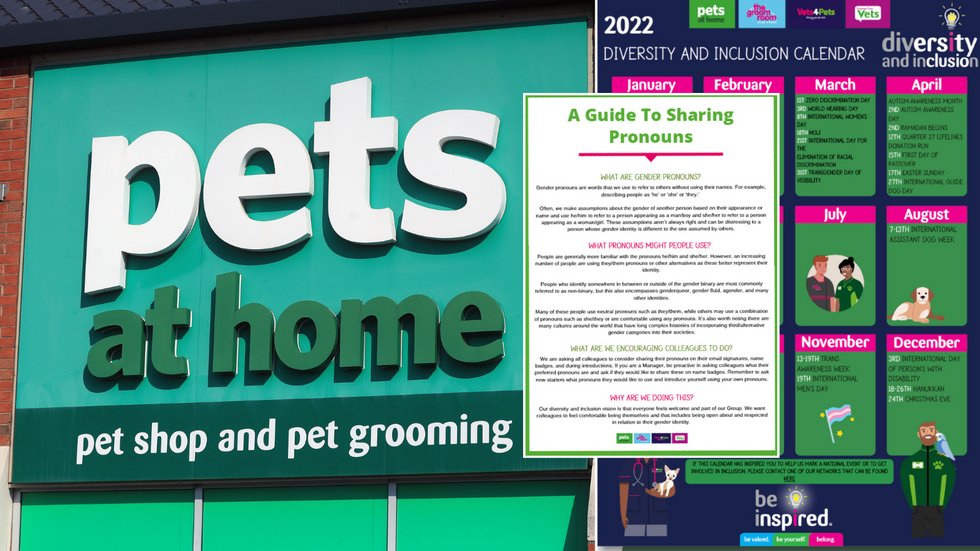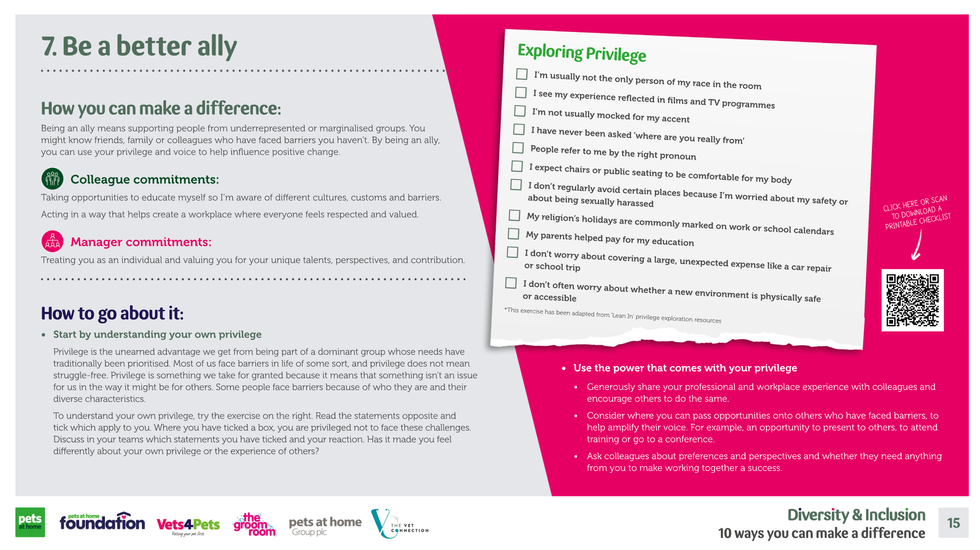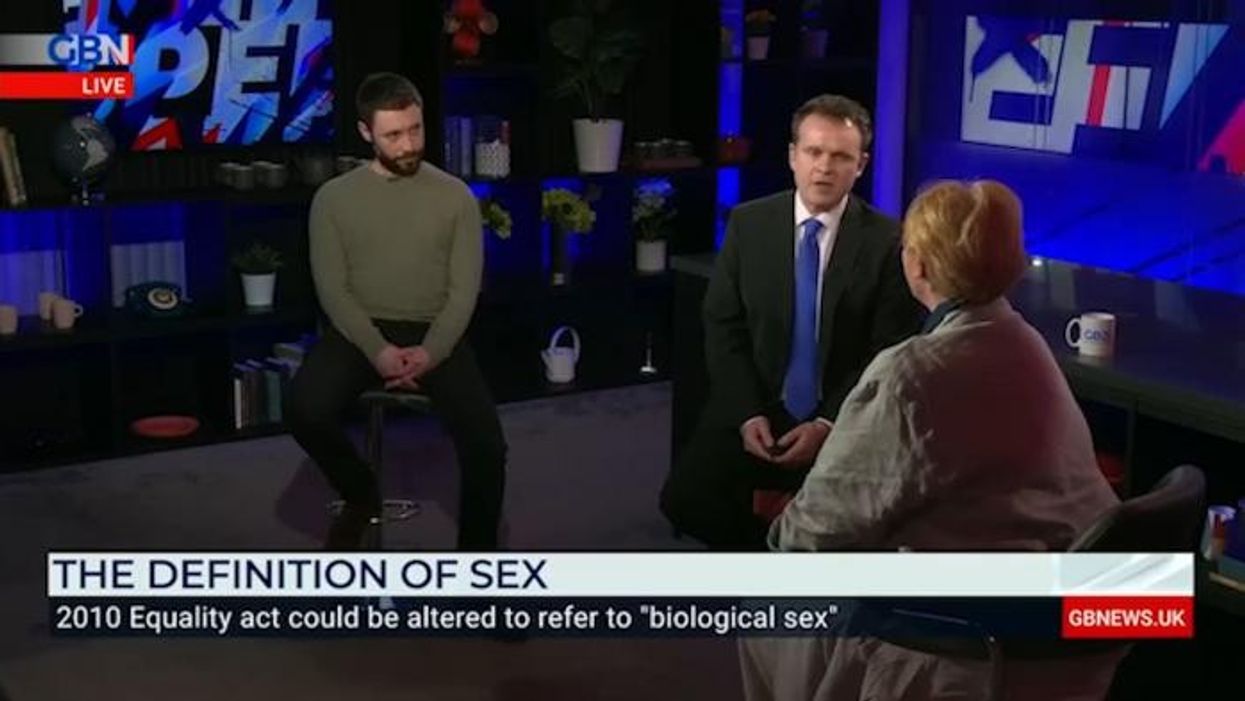Pets at Home diversity talk speaker claimed being childless is a 'privilege' during 'woke webinar' to staff

‘How ‘privileged’ does a couple unable to have children feel?’, James Esses asked
Don't Miss
Most Read
Pets at Home have been slammed for “corporate virtue-signalling” after it emerged an employee of the retailer had described being “childless” as a form of privilege in a staff diversity ‘webinar’.
The ‘allyship’ webinar, available to Pets at Home employees, included a host expressing her view that her “privilege” was being “a white, straight, non-disabled, childless, married, economically stable, homeowner, living in a developed country”.
Its contents – alongside other internal “diversity and inclusion” documents – were leaked by a whistleblower to commentator James Esses, who published a scathing report on the pet seller on his blog.
Esses called the opinion – of an individual, not Pets at Home – expressed on the webinar “outrageous and offensive”, and asked: “How ‘privileged’ does a couple unable to have children feel? And what does it say to parents, suggesting that having children is some sort of handicap?”

Pets at Home is the latest British retailer to come under fire for 'woke' in-house guidance
|PA/Pets at Home
Though GB News understands the employee was not implying that having children was negative in itself – and instead was supporting colleagues who had the burden of balancing childcare with work commitments.
Another webinar included a Q&A with then-senior employee in which he was asked why LGBTQ+ people were attracted to working with animals.
The employee said: “This is a huge generalisation, so I’m going to be shut down for this, but in my experience I think generally people from [the LGBTQ+] community actually often have a much higher level of EQ (emotional intelligence), because I think they often have a greater sense of who they are and know themselves better and are more tuned in to the softer sides of life.”
Esses said listening to the response meant he “simply could not take any more” of the pet firm’s guidance, and asked: “How must the staff at Pets at Home feel, having this ideology shoved down their throats?"
LATEST DEVELOPMENTS:
- Anti-woke course launched at University of Buckingham combats 'distortion of academia' in Britain
- Private school head slammed for promoting 'woke cancel culture' after dropping references to British heroes
- ‘We need strong, masculine men!’ British Army deemed ‘too woke’ to fight Russia in scathing rant

Pets at Home asked all their staff to consider sharing their pronouns in a range of settings
|Pets at Home
It also emerged Pets at Home circulated a range of in-house documents on topics like pronouns, allyship, and diversity and inclusion.
Esses described the company’s request for “all colleagues to consider sharing their pronouns on their email signatures, name badges, and during introductions” as “adherence to gender ideology”.
Pets at Home stressed their request was “not mandatory”, but said: “The more of us who choose to do so, the more normalised it becomes and means individuals are less likely to feel singled out. Please show respect by using the correct pronouns.”
Other documents contained in the exposé included a guide to choosing suppliers which told staff to “consider asking suppliers about their own approach to diversity and inclusion” as it would help the firm to “have a wider positive impact”.

James Esses said the internal memos were an example of “corporate virtue-signalling”
|Pets at Home
Pets at Home also circulated a “10 ways you can make a difference” handbook which Esses described as a “corporate virtue-signalling manifesto”, alongside a “diversity and inclusion calendar”.
This is not the first British retailer to circulate similar in-house guidance; earlier this year, it emerged John Lewis had published advice for parents of trans children seeking to “educate themselves”.
A Pets at Home spokesperson told GB News: “At Pets at Home, we celebrate the diversity of the communities we operate in and empowering colleagues to share their own experiences and views can help us achieve this and create a better, more inclusive working environment.”
In another statement, the firm said the handbook “was created in response to colleague feedback requesting more specific guidance from the business on how to be inclusive” and “is a guide to ensure that all colleagues and customers are treated with respect.”











